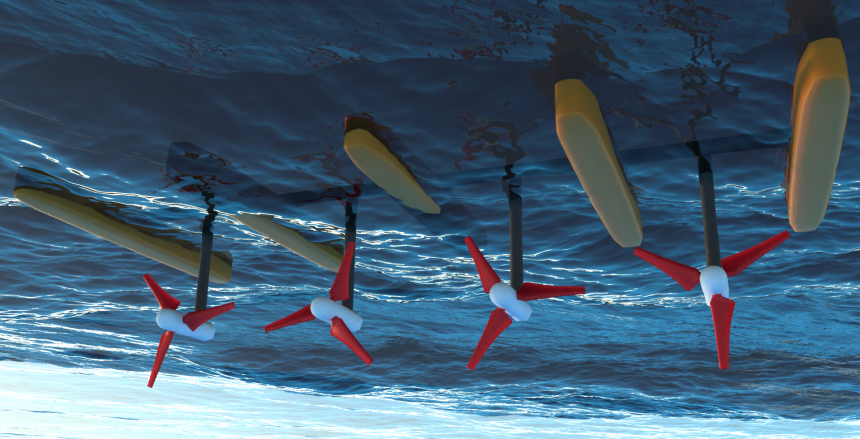
Report highlights 2 Egyptian projects among major clean energy ventures in N.Africa
A report by Energy Capital & Power highlighted two Egyptian projects – Suez Wind Power ...

An ambitious £7 million project – ‘Co-design to deliver Scalable Tidal Stream Energy’ (CoTide) – is meant to help deliver scalable, affordable and sustainable tidal stream energy, thus contributing achieving to the UK Net Zero goals.
The University of Oxford is to lead CoTide which will deliver the understanding, tools, and data to support the progressive and step change reductions in cost and uncertainty needed to deliver scalable, sustainable, and affordable tidal stream energy.
CoTide will bring together three multi-disciplinary teams from the universities of Oxford, Edinburgh, and Strathclyde. Backed by investment from the Engineering and Physical Sciences Research Council (EPSRC), the project will address the key challenges that are currently preventing the tidal energy sector from reaching its full potential, according to Oxford University.
“The project will also further develop deep collaborative academic-industry partnerships that will help support and deliver future tidal energy technologies and wider research,” said Professor Richard Willden, Department of Engineering Science at Oxford University.
He added “We have a huge opportunity as a country to harness the powerful tides that surround us and use innovative engineering to develop greater energy security and solutions to help meet our 2050 net zero goals.”
“This EPSRC investment in CoTide allows us to bring together world-class engineering expertise and drive forward the kind of creative, collaborative research that will ensure the UK remains a world-leader in tidal stream development and deployment.”
Achieving the UK’s target to reach net zero by 2050 requires the decarbonization of our energy supplies and a huge expansion of renewable energy generation from the current 50GW to 120-300GW. The powerful tides that surround the UK remain underutilized, but have significant potential as a source of greener power that could make a meaningful contribution to this goal. Unlike the wind and the sun, tides ebb and flow at predictable times each day, and so have the advantage that they can provide power that is both renewable and reliable, enabling more resilient energy networks.
CoTide will focus on developing state-of-the-art tidal stream turbine systems. Unlike more traditional tidal barrages and tidal lagoons that require turbines to be installed in structures such as dams or sea walls, tidal stream turbines are fixed directly out at sea in the line of the strongest, most suitable tidal flows. This makes them cheaper to build and install, and reduces their environmental impact.
If fully developed across the UK, tidal stream systems have the potential to generate in excess of 6GW, enough to power over 5 million homes, with an export market worth £25bn supporting over 25,000 marine energy jobs.
But technical challenges remain, and tidal stream systems require careful design to maximize power whilst providing reliability in hostile marine environments characterized by corrosive seawater and unsteady loading caused by waves and turbulence.
Professor Willden added “Through a unified co-design approach, CoTide will develop a framework to assess the impact of design decisions and will contribute fundamental understanding of how to achieve through-life reliability in addition to maximizing the potential of digitalization for optimal performance.”
The project will also have a strong focus on increasing the sustainability of tidal stream systems. For instance, the team will explore new methods to assess the environmental and ecological impacts of future tidal stream farms, and whether turbine blades could be manufactured from bio-based materials that can degrade at the end of their life.
Dr Kedar Pandya, EPSRC’s Executive Director for Cross-Council Programs said “We are proud to be supporting this innovative group of researchers and their push to better develop the UK’s access to clean, green, secure – and reliable – energy. The UK leads tidal stream technology and science development, with most developers based or operating in the UK, and CoTide is a significant opportunity to secure global industry and academic leadership.”
A report by Energy Capital & Power highlighted two Egyptian projects – Suez Wind Power ...
The opening concert of the Annual Meeting 2025 in Davos-Klosters will address the pressing issues ...
Juhayna Food Industries proudly announced that its agricultural arm, El Enmaa for Agricultural Development, has ...


اترك تعليقا